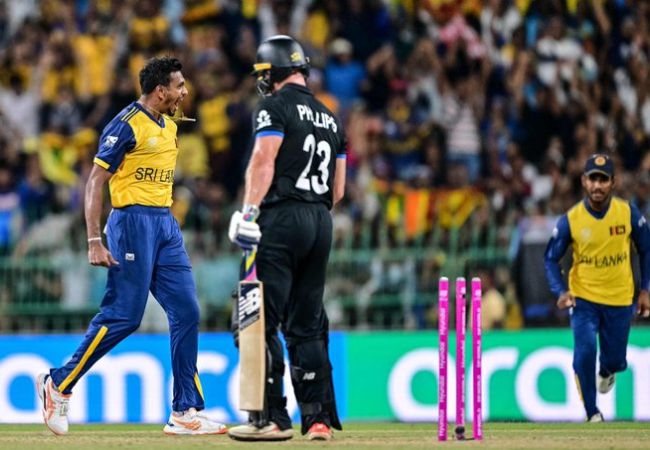Mangaluru: A viral message circulating on social media platforms in Kannada language praises Prime Minister Narendra Modi for his alleged move against 'Article 30A' in the Indian Constitution. The message claims Modi was ready to eliminate Article 30A from the Constitution.
The message claims that India's first Prime Minister, Jawaharlal Nehru, betrayed Hindus by enacting this article, restricting the preaching of Hinduism and Hindu culture in public schools and colleges. It also states that Sardar Vallabhbhai Patel opposed this article, and after his pressure, Nehru withdrew it, but later reinstated it after Patel's demise.
The message further alleges that Article 30A confiscates donations to Hindu temples for the government's use, while donations to mosques and churches benefit Muslim and Christian communities respectively. Additionally, it asserts that Article 30 allows teaching the Quran in madrassas but prevents the teaching of the Gita in schools.
Our fact-check reveals that the viral claim is false. There is no Article 30A in the Indian Constitution. Article 30 indeed exists, granting rights to educational institutions established and operated by minorities. It empowers religious or linguistic minorities to establish and manage educational institutions of their choice. This article has three subsections:
1. Right to Establish Institutions: All minorities, whether religious or linguistic, have the right to establish and administer educational institutions of their choice.
2. Protection of Minority Rights: If any law requires the compulsory acquisition of property owned by a minority educational institution, the state must ensure that it doesn't violate minority rights.
3. Non-Discrimination in Financial Assistance: The state cannot discriminate in providing financial aid to educational institutions run by minorities.
Article 30 enables minority communities to provide education in their own language. For instance, Muslims can use Urdu, and Christians can use English as mediums of instruction.
Furthermore, Article 28 deals with religious instruction or worship in educational institutions. Clause 1 prohibits religious instruction in state-funded institutions. However, clause 2 allows religious education in institutions administered by the state but established under specific trusts mandating religious instruction.
Conclusion:
In summary, there is no Article 30A in the Indian Constitution. Article 30 guarantees minority rights, allowing them to establish and manage educational institutions, and does not impose any restrictions on teaching religious texts. The viral claims regarding restrictions on Hinduism, unequal treatment of donations, and teaching practices are unfounded.
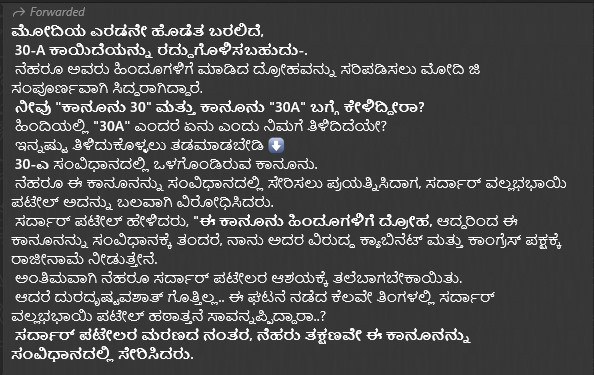
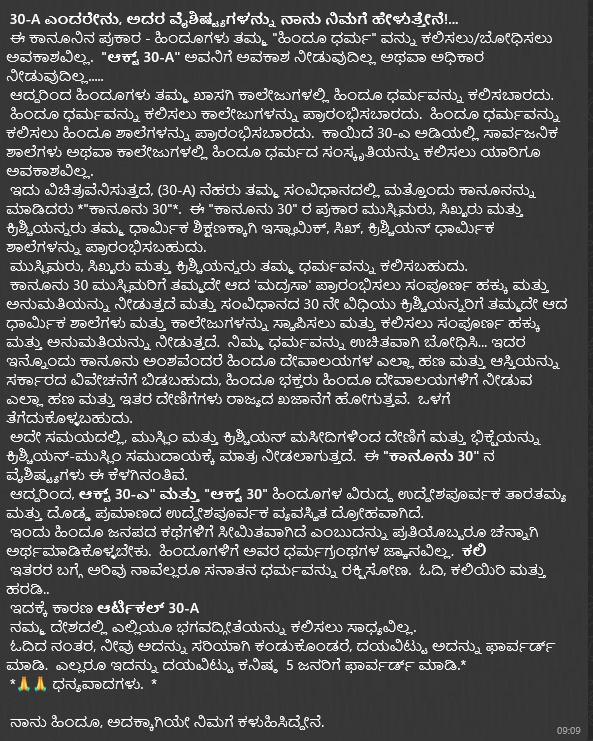
Let the Truth be known. If you read VB and like VB, please be a VB Supporter and Help us deliver the Truth to one and all.
Lucknow (PTI): The Uttar Pradesh Congress on Wednesday staged a statewide protest demanding a fair and transparent inquiry into the FIR lodged against Swami Avimukteshwaranand Saraswati and those who filed the complaint against him.
In a statement issued here, the party said memorandums addressed to Prime Minister Narendra Modi were submitted through district magistrates in all districts of the state.
Uttar Pradesh Congress spokesperson Manish Hindvi told PTI that the memorandums were handed over through the district administration in all 75 districts.
In the memorandum, the party alleged that Saraswati and his disciples were "unnecessarily harassed and humiliated" by police on the occasion of Amavasya and were prevented from taking a ritual bath (at the Magh Mela). It further alleged that some disciples were manhandled and taken to a police station.
The memorandum also claimed that an FIR was later registered against Saraswati, his disciple Swami Mukundanand Brahmachari and several unidentified persons in a sexual harassment case. It termed the case a "conspiracy" aimed at tarnishing the seer's reputation.
Citing Articles 25 and 26 of the Constitution, the memorandum stated that these provisions guarantee religious freedom and the right of religious denominations to manage their own affairs.
It described the position of shankaracharya held by Saraswati as "one of the highest spiritual posts in Sanatan tradition" and alleged that the entire episode appeared to have been "orchestrated in a planned manner".
"We request that the background of the persons who got the FIR registered be investigated in a transparent manner by a retired high court judge and strict action be taken against them," the memorandum said.
It also sought a "fair and transparent probe" into the allegations levelled against Saraswati so that the truth could be established.
Earlier, Uttar Pradesh Congress president Ajay Rai had told reporters in Varanasi after meeting Saraswati that the party stood firmly with him.
The Congress said it would continue to press for an impartial inquiry into the entire episode.
On February 21, an FIR was lodged in Prayagraj against Saraswati and his disciple Mukundanand Brahmachari on charges of sexually abusing two persons, including a minor, over the past year at a gurukul and religious congregations, including the recently concluded Magh Mela.
Days after he was booked, Saraswati had said on Monday that he would not oppose his arrest and asserted that the "fabricated story" would be exposed sooner or later.
At a press conference on Wednesday, Saraswati alleged that criminals rule in Uttar Pradesh, level allegations and influence investigations, as he denied having any contact with the two persons for whose alleged sexual abuse he has been booked.

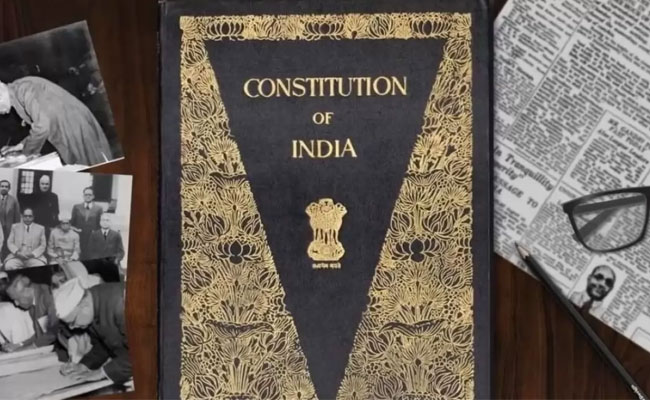
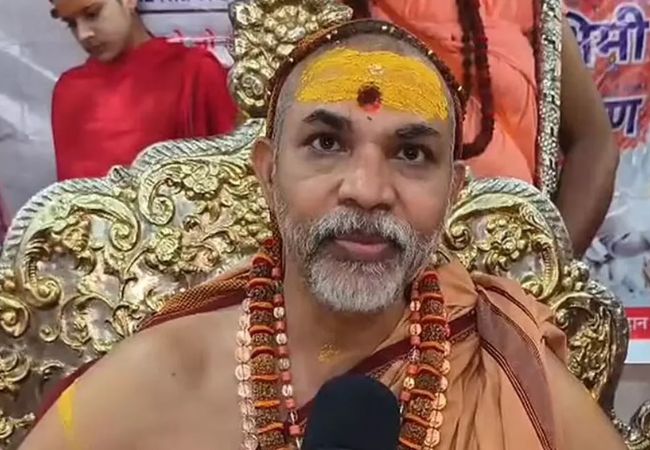
_vb_77.jpeg)
_vb_00.jpeg)
